'I booked a last-minute flight and bought a castle'
- Published
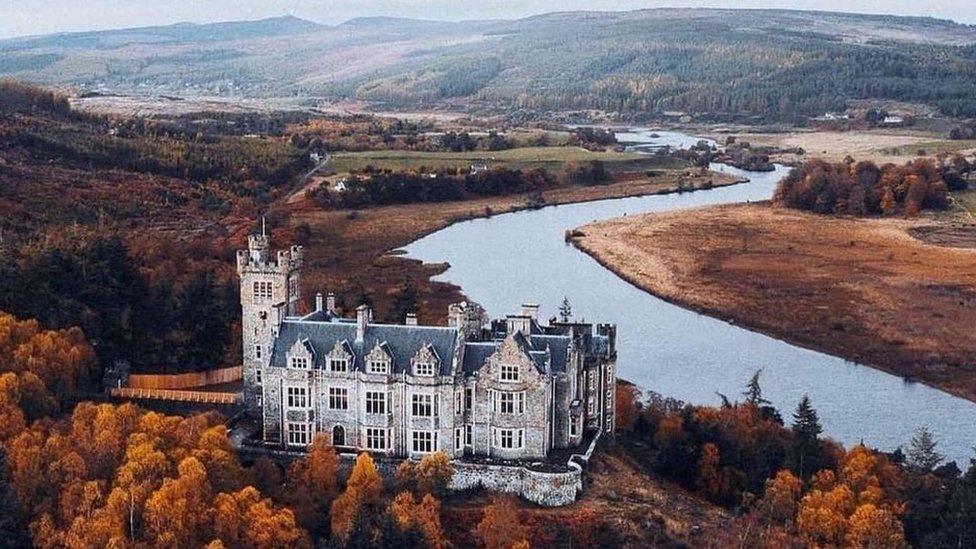
Carbisdale Castle was built in the early 20th Century
"Everything looked like it would fall apart," says Samantha Kane of her first viewing of cliff-top Carbisdale Castle.
There was a problem with water seeping into parts of the country house, and some of the rooms were in a serious state of disrepair.
When the London-based barrister made her viewing last year, the Highland property had been placed on the market for the third time in six years.
Significant maintenance costs, or maybe tales of the castle being haunted by a ghostly white lady, appeared to have scared off some potential buyers.
But the lawyer - who refers to herself as Lady Samantha Kane of Carbisdale Castle - was intrigued.
She says: "I had heard it had been sold, but then the sale fell through and it was back on the market.
"I thought I should at least go and see it.
"So I took a last-minute flight to Inverness and made my first trip to that far north in the Highlands."
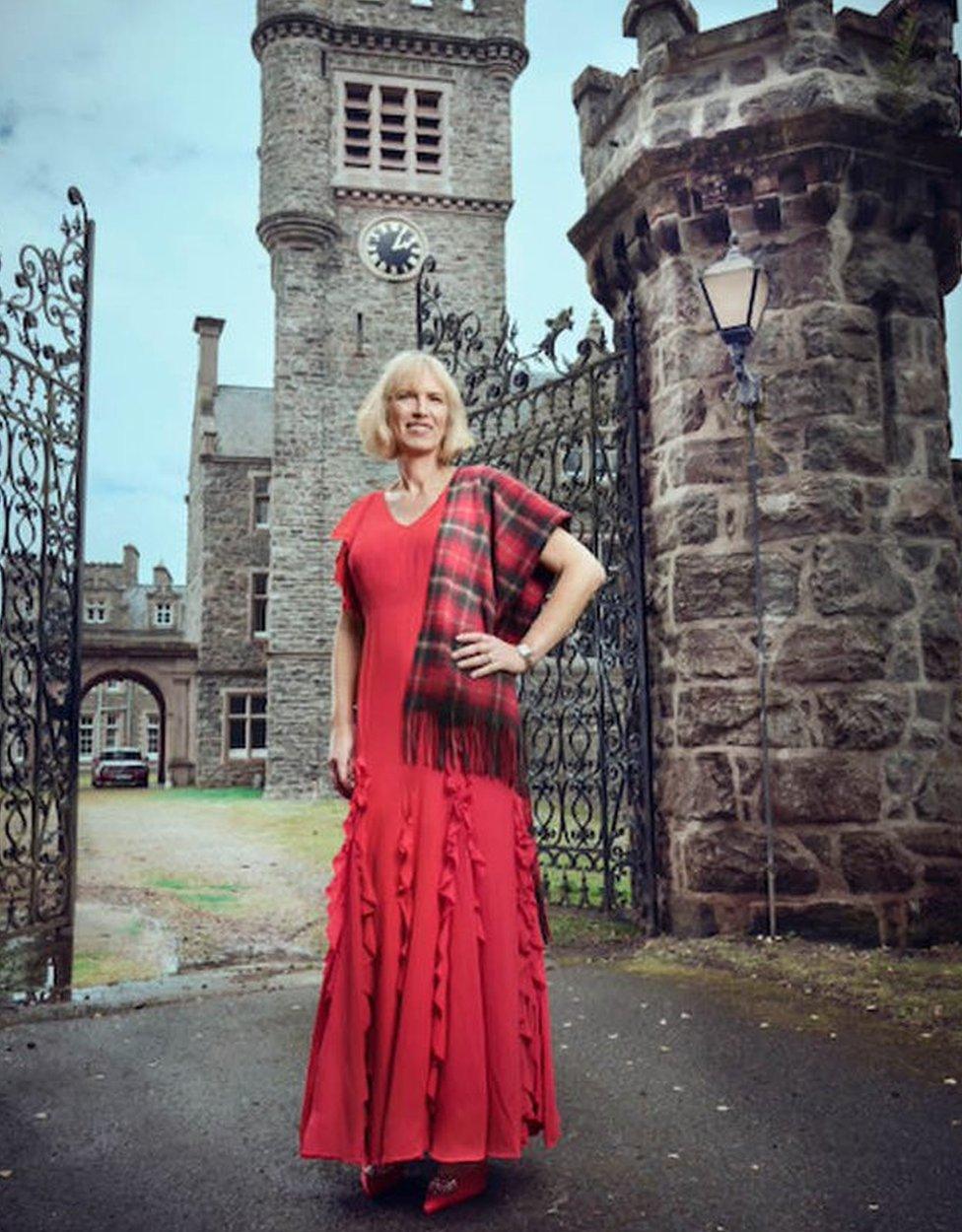
Samantha Kane outside the castle

She added: "I arrived at Carbisdale Castle and it was so atmospheric. It's a magnificent building.
"When they opened the door and I went in there were grandiose rooms, but all sadly had gone to ruin. There was a lot of ingress of water.
"But I thought somebody ought to save this iconic building and landmark for future generations. I immediately made an offer unconditionally and I said: 'I must buy this castle'."
Her offer was accepted.
Her interest in the property near Ardgay, in Sutherland, began when she first learned of its history.
For 60 years from 1945 the castle was a youth hostel, but during World War Two it had served as a sanctuary for members of the Norwegian royal family after Nazi Germany's invasion of Norway.
At the end of the war, Carbisdale hosted the signing of an agreement that required Russian troops, who had captured Norwegian villages while fighting German soldiers, to peacefully withdraw from Norway.
And then there was the castle's original resident, Mary Caroline Blair. Ms Kane was fascinated by her story.
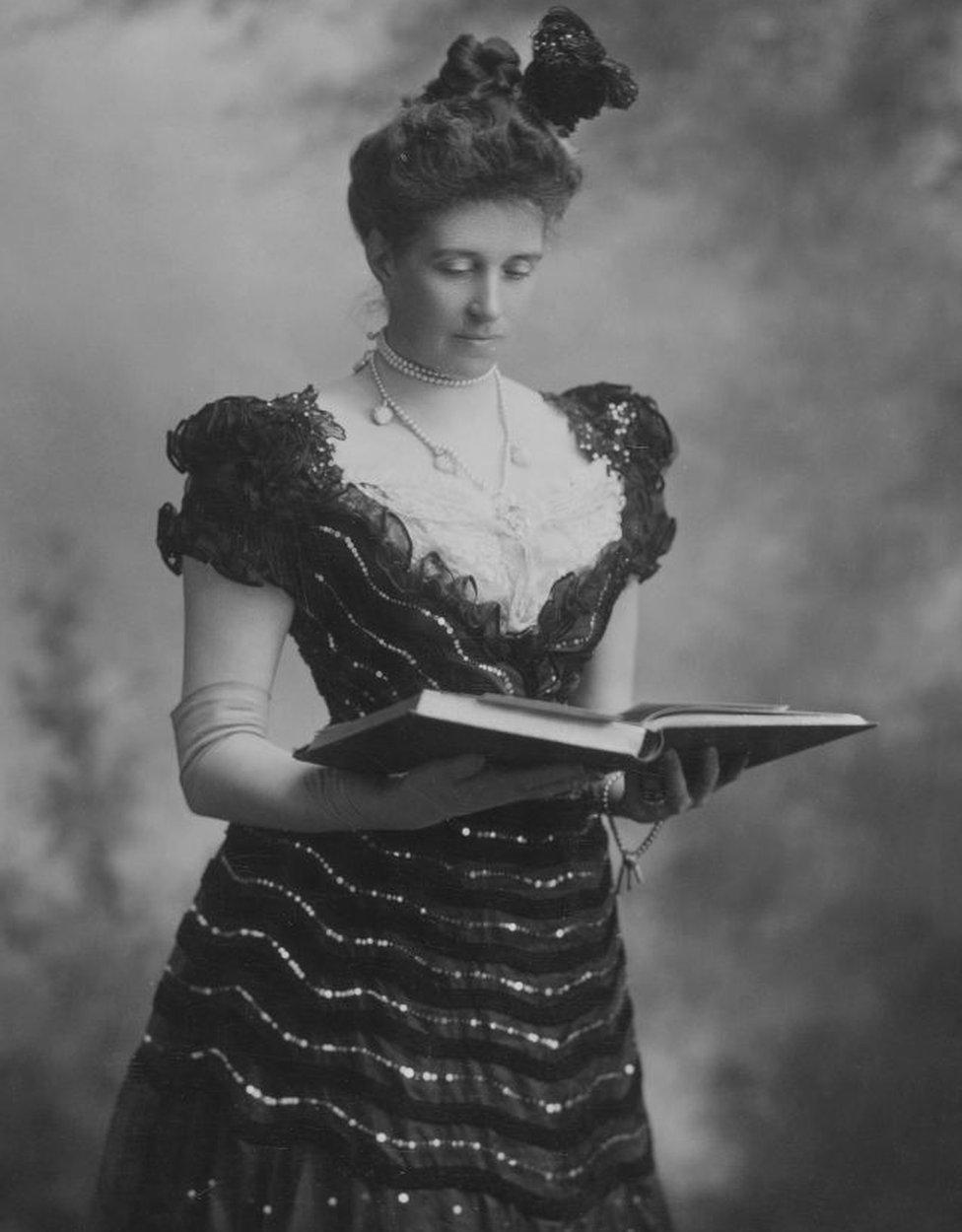
The castle was built for Mary Caroline Blair

In Victorian London, the Oxford-born Army captain's wife found herself at the centre of a high-society scandal.
She was having an affair with George Sutherland-Leveson-Gower, a married man and the third Duke of Sutherland.
The duke's family owned huge swathes of land in the Highlands and played a part in Sutherland's notorious Clearances which saw families moved, often forcibly, off land to make way for large-scale farming.
A bitter family feud ensued when Mary Caroline became the duke's second wife just months after the death of his first wife. Mary Caroline's own husband had earlier died in a shooting accident.
The new duchess' in-laws were unhappy at how quickly the marriage had happened.
Queen Victoria, a close friend of the duke's first wife, was among those who had appealed to the duke to wait longer before remarrying.
Though her formal title was the Duchess of Sutherland, Mary Caroline was disparagingly nicknamed Duchess Blair.
Tensions escalated when the duke himself died and the duchess' inheritance was contested by her stepson.
She was later jailed for six weeks in London's Holloway Prison after being accused of destroying documents related to the will.
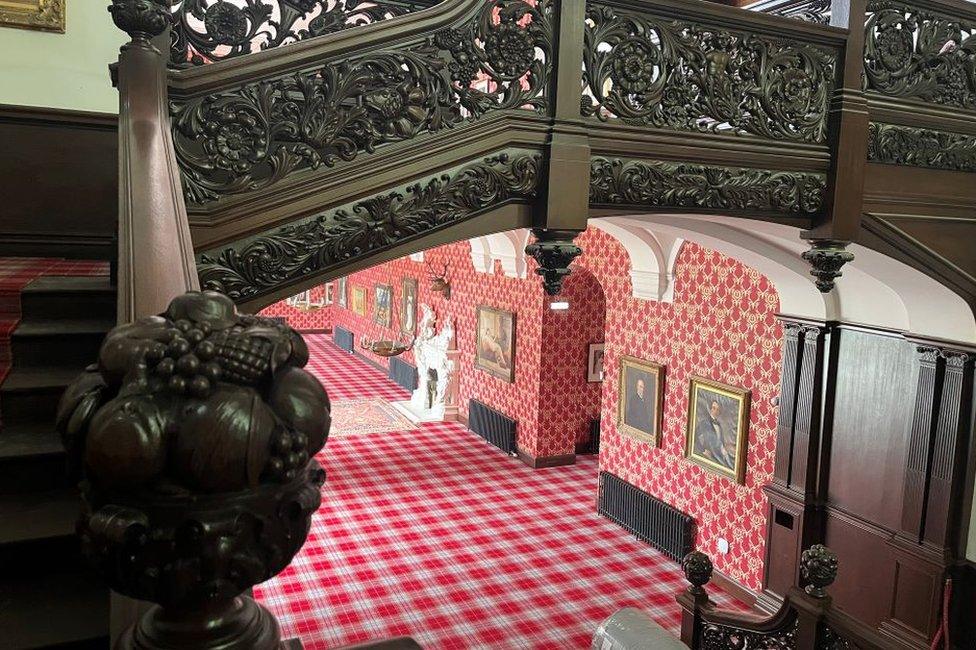
Carbisdale Castle has undergone restoration work over the past year
The dispute was eventually settled, with the Duke of Sutherland's family agreeing to build the duchess a new home - provided it was on a site outside the boundaries of the family's Sutherland Estate.
The duchess selected a hillside plot close to - and visible from - the estate.
Its clock tower was built with only three faces, with the side facing Sutherland Estate blank because the duchess did not want to give her former in-laws the time of day.
The architectural details would lead to Carbisdale becoming known as the Castle of Spite.
Ms Kane says: "This was a woman who built a castle in the Victorian era, a time when women didn't have many rights.
"That touched a chord with me because in my life I have faced discrimination, that has driven me to try my hardest to succeed - to prove to the world that no-one can bring me down."
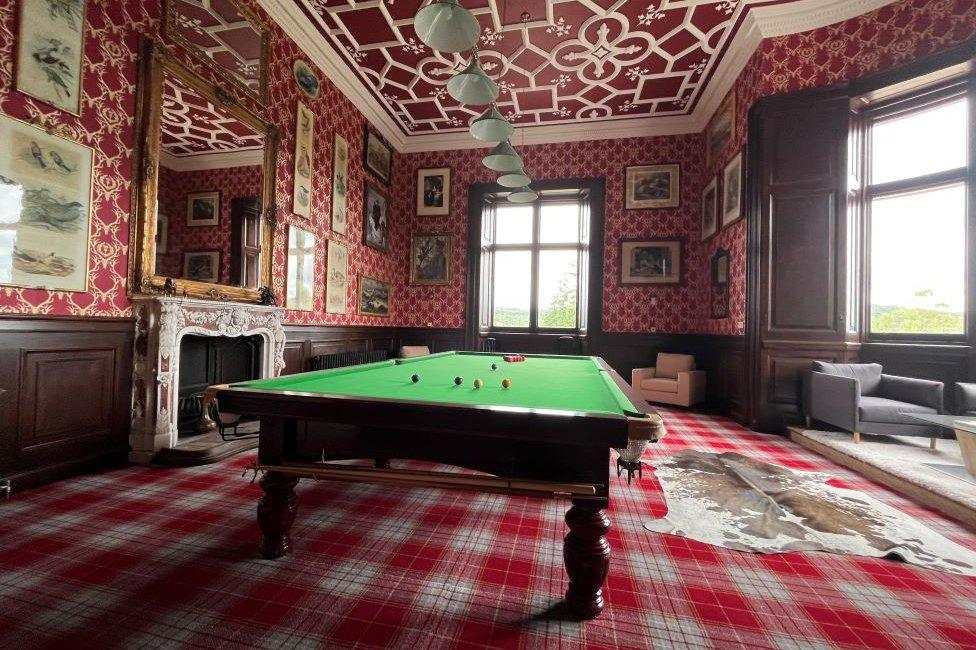
The property dates from the early 20th Century
In the year since her purchase, major renovations have started at the castle and Ms Kane has further plans.
The property is her private residence, but she proposes opening up parts as a museum telling the story of the castle and the local area, and hopes to use other areas for "quality tourism".
She also plans for a distillery and 12 eco-tourism huts powered by renewable energy schemes. The projects would support local jobs.
Her other ideas include inviting Norway's royal family to see where their ancestors were kept safe in wartime.
And what of the castle's ghost?
"Personally, I think it's Duchess Blair," she says, suggesting that unexplained sounds in undeveloped parts of the property could be caused by the resident spook.
- Published5 October 2022
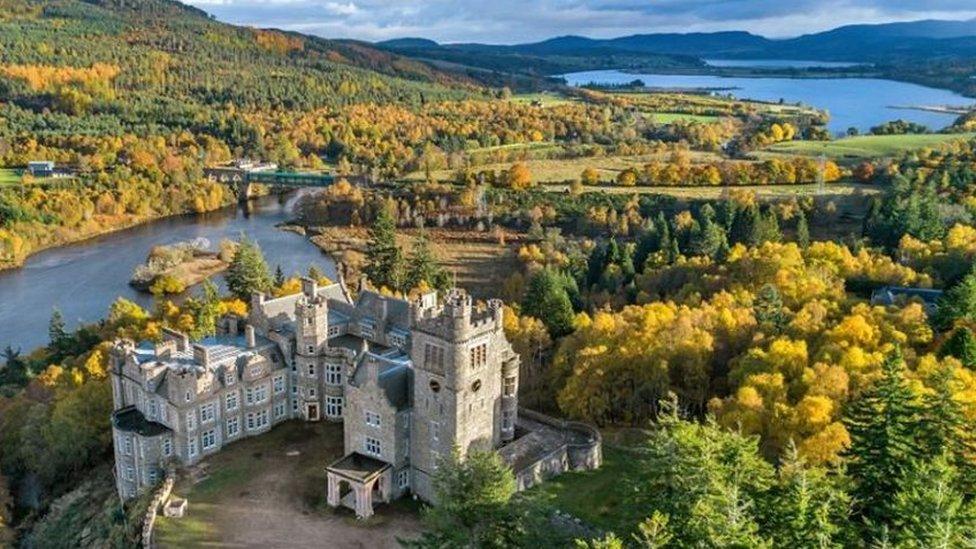
- Published18 May 2022